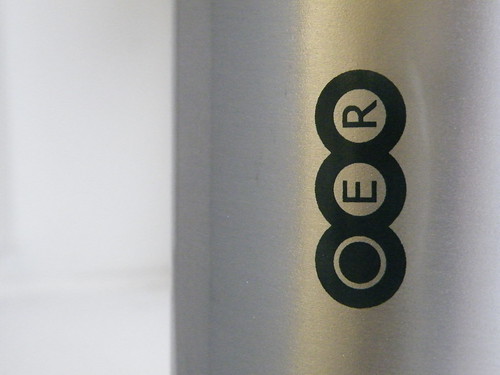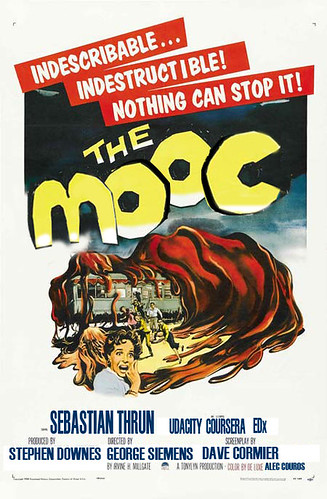Here's a thought experiment, if there were no students fees and higher education were free, what would that do to MOOCs? I mean, obviously it'll never happen... oh, wait, Germany just abolished student fees. Yeah, but what do they know about running an economy, right?
So, on with our thought experiment. At the opposite ends of the spectrum we have two scenarios: It doesn't change a thing, as MOOCs are about a different form of learning; or it completely kills MOOCs as their main feature is that they are free.
Then there are some elements inbetween these two extremes:
- MOOCs become more focused on niche subjects not served by higher education - many current MOOCs offer courses straight out of conventional curriculum, indeed if they want big numbers for monetisation then the curriculum becomes narrower. But in a free higher ed system MOOCs can fill some of the demand and gap not met by conventional curriculum. These would be offered by communities, societies, individuals for interest and maybe universities and commercial providers for professional development
- MOOCs are outreach focused. While competition is lessened in a free HE system between universities, there is an increased pressure on them to perform social-good functions (since they're being paid for by the tax payer). MOOCs are a useful means of achieving this, with the emphasis now on open access, and less on shop window.
- MOOCs offer a different granularity. Related to the above, the full 3 or 4 year degree is not for everyone, and MOOCs provide a means of offering smaller chunks of courses. There is less pressure on them to be a taster or freemium model for the full degree in a free system. They operate as smaller units of learning which may be aggregated, but may not, appealing to leisure learners and professional updating.
- MOOCS are experimental. As with the current system there is room for MOOCs to act as a means of experimenting with technology, pedagogy or curriculum. This allows universities to trial approaches and learners to trial subjects, without impacting upon the core degree. The impetus to do this may be lessened in a free HE system however.
My guess is that in a society where higher education is freely available, then the commercial focus on MOOCs decreases. They are competing less directly with an expensive system, and their main selling point of being free is undermined. But I also suspect they wouldn't disappear. In fact, they end up being altogether more interesting I think, and other features about them come to the fore. And that probably tells us quite a lot about the current MOOC debate.


